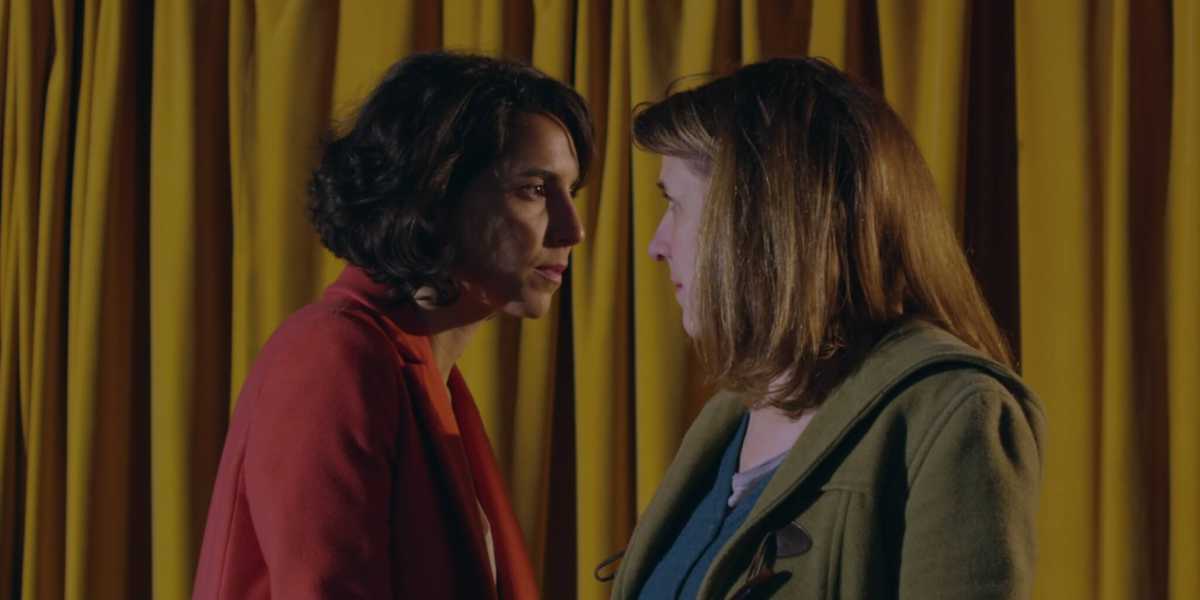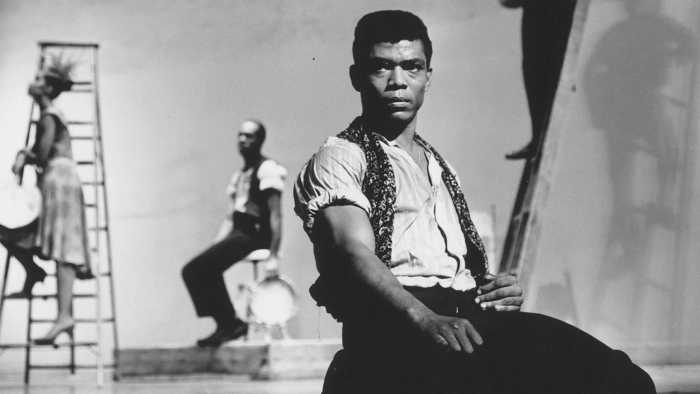“Isabella” is the most mysterious entry in gay Argentine director Matias Piñeiro’s series of Shakespeare-inspired films. Its images indulge in a play of color and light. The film initially seems gentle and relaxed, but its conflicts come closer to the surface. It begins and ends with a film-within-a-film, showing a woman walking to the end of pier to throw 12 stones into the water. This ritual must be done when the light has turned a pale purple, something beautifully conveyed by Fernando Lockett’s cinematography. Each stone represents a doubt needing to be cast away.
“Isabella” hints at a reality nastier than what it actually shows. Mariel (Maria Villar) is an actor introduced at an audition for the role of Isabella in Shakespeare’s “Measure for Measure.” Pregnant at the time, she has rehearsed lines with Lucinda (Agustina Muñoz), who turned down this part. Especially with a baby on the way, Mariel needs work as an actor to make ends meet. Rejected for “Measure for Measure,” she has to borrow money from her brother, who happens to be its director. Lucinda is sleeping with him. Long scenes of the two women relaxing in the hills outside the city of Cordoba break up the film’s narrative.
“Isabella” uses images of an installation created by Mariel and her friend Sol as punctuation. At first, it looks like an Abstract Expressionist painting. Repetition eventually makes it obvious that the layers of color are objects in a real space. It’s actually quite elaborate, with wooden boards cut out and illuminated by LED lights. Honestly, I was baffled by this subplot, which is expressed almost entirely in images, and didn’t fully understand until I read other reviews of “Isabela.” But it feels of a piece with a film that also returns to the image of a rainbow’s worth of Post-It notes being shuffled and placed on the floor. Piñeiro captures the natural beauty of Cordoba well, filming its landscapes in long shot. The theater rehearsals take place on a set, bare but for a chair, that feels oddly unreal, especially because Lucinda interacts with an unseen director who stands behind a mirror. Mariel’s installation rhymes visually with this space.
The mood of “Isabella” is jarred by the fact that its time frame is so unclear. Piñeiro jumps from present to future without the usual visual cues. Important events pass by. For example, Mariel says, in a voice-over, that she missed seeing Luciana in the premiere of “Measure for Measure” because she was asleep at the time. Mariel gives up her desire to act to become a visual artist, but we see her work without much explanation.
Piñeiro’s approach to Shakespeare has always offered reflections of the plays to which his films refer, set in a bohemian collegiate milieu. While Villar and Muñoz are regulars in his casts, working with him for more than a decade, they’re noticeably older this time around. “Isabella” describes situations and dilemmas of early middle age: a 38-year-old woman giving birth without the ability to support himself, which leads to a crisis about whether or not she should go on acting. I’ve laid the film’s conflict out in a blunter, more linear fashion than it does.
The mysteries of “Isabella” are captivating, but figuring out what they add up to is difficult. While Piñeiro says he will make two more films in his Shakespearean series, “Isabella” plays like the end of a certain direction in his work. It describes disillusionment and a friendship concealing envy and professional rivalry rather than youthful vibrancy, yet “Isabella” conceals that fact under a gorgeous use of color. When its themes are recognizable, they’re visualized in a manner that pushes them to the side, suggesting that something else is really going on. Playing with color ultimately seems more important to the film than drama. Hypnotically enigmatic, “Isabella” suggests a new direction for Piñeiro’s films without quite fulfilling it.
“Isabella” | Directed by Matias Piñeiro | The Cinema Guild | In Spanish with English subtitles | Opens Aug. 27th at Film at Lincoln Center



































